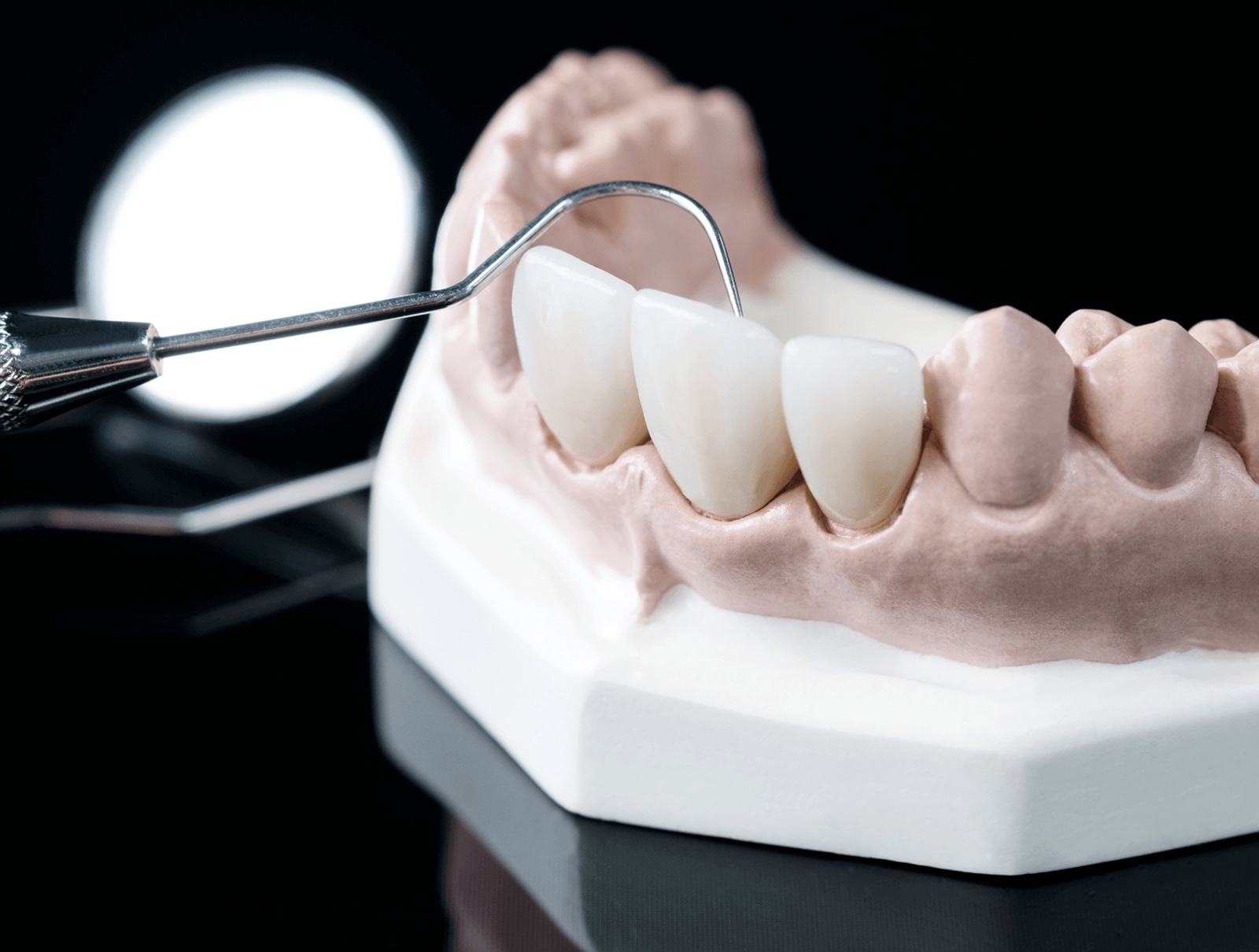
Dental Facts
- Home
- Blog
- Dental Facts
- Dental Facts
Hookahs, Water Pipes & Your Teeth
Hookah bars and smoking-style cafes are becoming a little more popular around college campuses, but these smoking lounges can be extremely damaging to your teeth and oral health. According to research published in the Journal of the American Dental Association, waterpipe or hookah smoking has been associated with:
- Gum disease
- Mouth cancer
- Esophageal cancer
- Dry sockets
- Stained teeth
- Lung cancer and heart disease
More than 2 million Americans report smoking out of a hookah or waterpipe, but a lot of them believe that they are safer than traditional cigarettes because smoke inhaled through a hookah is less concentrated than from a cigarette. That said, a cigarette is often finished in a couple of minutes, while hookah sessions can last around an hour, meaning you’re taking a lot more inhalations of hookah than you would a small cigarette. That’s not to say that one is better than the other, only that they both pose significant risks for your mouth.
Waterpipes and Your Oral Health
One concerning issue with waterpipes and hookahs is that they tend to attract a younger crowd. Since special flavored tobacco can be used, teens may be drawn to the strawberry, chai, or mint flavors that hookah bars offer. Research found that roughly 1 in 3 teens between the ages of 13 and 15 have tried hookah, as have 20 percent of college students. Another reason it’s attractive is that there aren’t always age restrictions on the ability to purchase the necessary supplies.
As if you needed any more reasons why waterpipes and hookahs aren’t great for your oral and overall health, the World Health Organization reports that one waterpipe session can be the equivalent of smoking 100 cigarettes. It may seem cleaner and cooler than smoking a cigarette, but it can cause plenty of problems for your mouth and teeth, so try to avoid the habit at all costs.
We understand the allure that a social hookah session can bring, but your teeth need to last you a lifetime, so don’t jeopardize their health by overindulging with hookahs or waterpipes. There are plenty of other social activities that don’t negatively affect your oral health, so suggest some alternatives if some of your friends want to hookah. And as always, make sure you are regularly brushing your teeth, flossing, and visiting your dentist for annual checkups. We want to ensure that your teeth stay strong and white for decades to come, so start by making smart decisions when it comes to tobacco.
10 Dental Symptoms That Need Attention
A lot of patients just rely on regular dental checkups to spot problems like cavities or tooth decay, but if you know what symptoms to look for, you can help to spot the signs of a dental problem sooner. But which symptoms suggest that you should head into your dentist’s office for a visit? Below, we take a look at the ten most common dental symptoms that indicate there may be a problem in your mouth.
10 Dental Symptoms To Watch For
- Toothache – A toothache is a common sign of a cavity or another dental issue.
- Tooth Sensitivity – Sensitive teeth may signal tooth decay, worn fillings, or gum disease.
- Bleeding Gums – Bleeding or sore gums can be a sign of gingivitis.
- Mouth Sores – Mouth sores that last more than a few days should be examined by a dentist.
- Bad Breath – Bad breath can be a precursor to gum disease.
- Clicking or Popping Jaw – Jaw discomfort can be caused by a joint issue or gingivitis.
- Dry Mouth – Dry mouth can be a side effect of taking medications or a sign of a dental problem.
- Oral Piercing Infection – If you are experiencing symptoms of an infection, check any oral piercings.
- Broken or Cracked Teeth – Usually accompanied by pain, a cracked tooth needs to be examined by a dentist as soon as possible.
- Discolored Teeth – Although it can be caused by food and drink choices, discolored teeth should be looked at by a dental professional.
For more information on which symptoms you should look for, or to make an appointment with Dr. Brooks, give his office a call today
Tobacco and Your Dental Health
If you smoke cigarettes or use chewing tobacco, we doubt that we’re the first person to tell you that it can have negative effects on your overall health. People smoke or use chewing tobacco for all different reasons, and we’re not here to judge you. That being said, it is our professional duty to let you know the damage that cigarettes and tobacco can have on your dental health so you can make the best decisions going forward.
Aside from causing bad breath, tobacco products can cause a lot more problems for your mouth. Cigarettes and tobacco can cause:
- Stained teeth or tongue.
- Inhibited sense of taste and smell.
- Delayed healing after dental work.
- Increased likelihood of problems during dental work.
- Difficulties correcting cosmetic dental problems.
- Gum disease,
- Mouth cancer.
Preventing Tobacco-Related Mouth Problems
When it comes to preventing tobacco-related mouth problems, the only solution is to quit using these products. We know that this is easier said than done, but things like brushing your teeth and flossing aren’t going to be able to prevent sensory degeneration or the potential onset of mouth cancer. Brushing and flossing are still important, but tobacco products simply have the potential to do too much damage that can’t be offset by a good dental hygiene plan.
If you are interested in giving up tobacco but are finding the process difficult, talk to your dentist. They’ll be able to suggest some products that can help reduce your nicotine craving and wean you off tobacco, and they’ll be able to share some other helpful tips and tricks. You’re not in this fight alone, and your dentist can be a key resource as you make positive changes to your oral health.
Minnesota Dental Clinics
Regardless of whether you’re a smoker or tobacco user, it’s very important to have a dedicated dental hygiene plan every day. Ensure that you are brushing your teeth for two minutes at least twice a day, and try to floss at least once a day. On a bigger scale, be sure to set up regular appointments with a dentist so they can look for signs of problems so little issues don’t turn into big messes. To set up an appointment with a dentist in your area, or to talk to Dr. Brooks about any dental questions you might have, feel free to get in contact with his office today!
Dental Health – Fact or Fiction?
When it comes to your dental health, it can sometimes be hard to separate myth from truth or fact from fiction. Today, we hope to clear up some of those misconceptions and test your knowledge of dental health with our fact or fiction quiz!
Dental Health Quiz
See how well you do on this dental health quiz. You can find the answers at the bottom of the page.
-
True or False. All senior citizens will need dentures at some point.
-
True or False. Calcium supplements are just as effective as calcium obtained through our diet.
-
When do permanent teeth begin to come in?
-
In general, what’s worse for your oral health, too much saliva or not enough?
-
True or False. An electric toothbrush cleans better than a manual.
-
True or False. I should let my dentist know about previous surgeries I’ve had, even if they aren’t related to your mouth.
-
About 2-5% of people suffer from what condition after having a tooth removed?
-
True or False. There’s nothing you can do about bad breath.
-
True or False. “Boil and bite” mouthguards are the best type of mouthguard if you have braces.
-
Who is the best source for all your dental questions in the greater Twin Cities area?
Answers:
-
False. Advances in dental health mean that roughly 75 percent of people over the age of 65 still have some or all of their teeth!
-
False. While calcium supplements are helpful at protecting your teeth, recent studies have found that they can slightly increase your heart attack risk compared to people who received their recommended daily amount through diet alone.
-
Permanent teeth usually come in around the age of six or seven.
-
Saliva has bacteria-fighting properties, so in general, it is better to have more saliva production than a dry mouth.
-
False. It doesn’t matter whether you use an electric toothbrush or a manual, it’s all about how well you hit all the surfaces of your teeth. Electric toothbrushes are only as effective as the toothbrush holder!
-
True. Some heart conditions or surgeries that require medications and antibiotics can increase your risk of infections if you’re having a dental procedure performed.
-
This condition is called a dry socket.
-
False. There’s plenty you can do about bad breath!
-
Although boil and bite are better than preformed mouthguards, if your child has braces, a custom mouthguard if probably the best option.
-
Dr. Tim Brooks and the team at Smiles for Life!
Hormones Affect Dental Health
Hormones affect a number of different things in our life, from our mood to our behavior, but did you know they also impact our dental health? It’s true. An overabundance of hormones can actually put a person at risk for certain oral health issues. Below, we explain why that’s the case, and what you can do to prevent hormones from wreaking havoc on your oral health.
Hormones and Your Gums
Hormone overproduction and problems with dental health are more likely to occur in women. That’s because estrogen and progesterone cause more blood to flow to your gums, which makes them more sensitive to irritation. This can cause them to overreact to minor irritations by swelling or bleeding. Inflammation can also develop, and left untreated it can lead to bone loss around the teeth and eventual tooth decay.
Hormones can often get a little out of hand during puberty, which is also a time when gums can be vulnerable to hormone-related issues. Red, swollen, and bleeding gums are all common during puberty, as are small canker sores, which typically heal just fine on their own. The best way to deal with hormone-related issues during this time period is by really focusing on caring for your oral hygiene. Brushing at least twice a day, flossing daily, and seeing a dentist at regular intervals can all help to prevent against plaque buildup and other issues that can contribute to dental discomfort.
Dental Health During Your Period and Pregnancy
Another time in which hormones can cause changes in your mouth is during your period. In fact, many women notice symptoms like swollen gums, bleeding gums, or canker sores in the days leading up to their period. These symptoms are generally caused by a spike in hormone production, but if they continue after your period has ended, they may be a sign of a more serious dental issue, and you should talk to a dental professional.
Also, it’s worth noting that birth control should not have an impact on your oral health. The newer birth control prescriptions greatly control estrogen and progesterone levels, which help to prevent any sensitivity or gum issues in your mouth. However, if your dentist needs
Finally, pregnancy can kick your hormones into overdrive. Some women develop a mild form of gingivitis during the second and eighth months of pregnancy, but this can usually be well-controlled by practicing good oral hygiene. You should absolutely continue to visit the dentist if you’re pregnant. Not only is it safe, but it can help to prevent against hormone-related issues brought on by pregnancy.
For more information about how hormones can affect your teeth and your gums, or to set up an appointment with Dr. Brooks, reach out to his office today.
Dry Mouth and Dental Care
Dry mouth, also known as xerostomia, is a condition that is caused by inadequate saliva production. Saliva is your mouth’s primary tool for maintaining healthy gums and preventing against tooth decay, so it’s easy to see how problems can develop if you have a chronically dry mouth.
That being said, there are a number of different ways you can treat dry mouth and prevent against tooth and gum problems. Here’s a look at why you should treat the condition, and how to best treat dry mouth.
Why Treat Dry Mouth?
You might think that dry mouth is just a mild annoyance that you have to live with, but it’s much more than that. Saliva is actually a mineral-rich solution that works to clean and protect your teeth. When saliva is in short supply, you are at an increased risk of plaque formation. This plaque can damage your gum line, lead to tooth decay, or cause gingivitis.
Dry mouth can be caused by a number of different issues. For example, it can be a symptom of Sjogren’s syndrome, which is a chronic autoimmune disorder where your body mistakenly attacks its own moisture-producing glands. Other causes of dry mouth include smoking, complications with certain medications, or the after effects of radiation treatment, which can damage your salivary glands.
How To Treat Dry Mouth
Your dentist can help you pinpoint your cause of dry mouth as well as offer solutions to fix the problem. Knowing the causes of dry mouth, your dentist may ask about your smoking or medication habits. Medications for blood pressure regulation and chronic pain are among the many medications whose side effects include dry mouth, so if your dentist believes they may be contributing to plaque buildup, talk to your primary care doctor about the possibility of changing medications. Changing these preventable causes of dry mouth are the easiest fixes for the problem.
That being said, if your dry mouth is caused by Sjorgen’s syndrome or another condition that can’t be cured with simple adjustments, you have to focus on lifestyle changes that will help alleviate symptoms. For example, some treatment options to combat dry mouth include:
- Increasing your Vitamin D intake.
- Drinking plenty of fluids.
- Using a humidifier at night.
- Avoid drinks with caffeine.
- Chew sugarless gum or suck on sugarless hard citrus-flavored candy to increase saliva production.
- Add mouthwash to your daily routine to fight against plaque buildup.
Talk to your dentist about other products or dry mouth mitigation techniques to incorporate into your daily life. Dry mouth is one of the most common conditions we see that leads to the need for dental work. Left untreated, severe mouth problems can develop, so if you’re experiencing dry mouth, do yourself a favor and bring it up to your dentist the next time you’re in their office. They’ll be more than happy to help you find some solutions so your mouth can produce the correct levels of saliva and protect your teeth and gums. For more information about dry mouth or your treatment options, reach out to Dr. Brooks’ office today.
American Heart Health Month
February is American Heart Health Month, and we want to help build awareness of how important it is to maintain the health of your heart. We use this time to address the fact that heart disease remains the number one killer of both women and men in the United States.
There are many risk factors such as getting older or having a family history of heart disease, but it is also known that there is a direct correlation between heart health and gum disease. Leaving “gum disease” untreated can cause serious heart problems. When gums bleed or are swollen, it is a sign of gum disease and should be evaluated. Bacteria from infected gums can dislodge, enter the bloodstream, attach to blood vessels, and may also trigger clot formation. To combat your risk factors, it helps to know your numbers.
At Smiles for Life, we recommend our patients have their blood pressure taken at each dental appointment, so they know this critical number. Blood pressure is the silent killer that leads to strokes and heart attacks. Since so many people see their dentist more often than their physician, it only makes sense to provide this number at their dental appointments so they can have access to this early warning sign. It could save a life!
Our team will help you prevent and treat gingivitis and periodontal disease, also known as gum disease, by doing a complete evaluation and making a treatment plan customized to you. Contact Smiles for Life today to schedule your next appointment or a free consultation.
Keep Your Teeth White – Key Foods to Avoid!
If you’ve recently had your teeth professionally whitened, it’s important to avoid foods and beverages that have a high potential to stain your teeth. Your teeth are very absorbent after the whitening process, making them soak up the colors of what you eat and drink. Below are some foods and drinks to avoid to keep your pearly whites, pearly white!
- Red wine
- Blueberries
- Soy Sauce
- Fruit Juice
- Soda
Try to swish with water or brush your teeth immediately after consuming staining foods if they
Book Appointment
Or call us at:
(952) 888-2300



